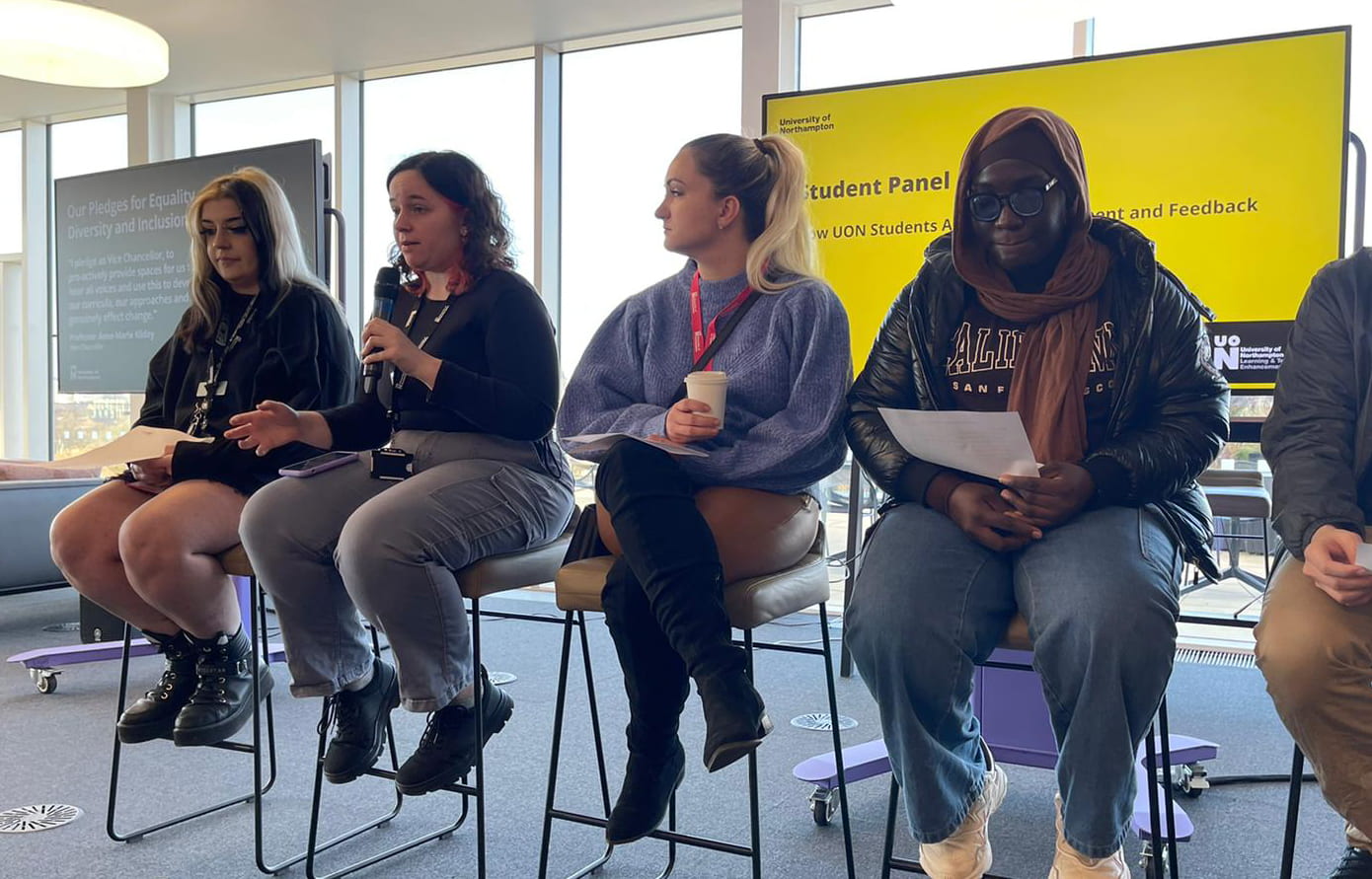Sharing Learning and Teaching Experiences
Quality Teaching | Meaningful Learning
News
| Current Papers: | |
| The Power and Impact of the Student Voice. Kate Coulson, Head of Learning and Teaching Enhancement |
The Power and Impact of the Student Voice
Kate Coulson – Head of Learning and Teaching Enhancement
The University of Northampton
“Never work with students”.
W.C. Fields (plus a K. V. Coulson embellishment)
In my role as Head of Learning and Teaching Enhancement at the University of Northampton, I have a bullet point on my job description that states I must: ‘Lead on the development of mechanisms to enhance student voice involvement as co-creators in learning and teaching’. I have excellent working relationships with our Students Union and their sabbatical officers and take those relationships very seriously: we meet regularly, I support them, they talk to me about concerns and challenges, we work together to ensure students understand concepts such as anonymous marking. But I wanted to do more. With encouragement and ideas from our Visiting Professor Karen Fitzgibbon from the University of South Wales I set about establishing a pilot student panel.
I wanted the institution (by that I mean all staff regardless of role) to understand the student experience. And not by reading minutes of an SU meeting. I wanted students to answer questions in 3D to a live audience. For the pilot, we (SU sabs and I) agreed that the umbrella topic of “assessment and feedback” would be a good place to start. The challenge began when I wanted to engage some students to be on the panel! It was time consuming, frustrating and a few times I wondered if it was worth it. Eventually, it all came together and students volunteered from several areas – those working as student reps within faculties, some Black Advocate students (more on that project another time but we have a Black Advocates programme that employs Black students to mentor other Black students) and also some Learning Development mentors.
I know what you are thinking: they are all engaged students who understand their assessments, what you need Kate is students who aren’t already working with the university. And to some extent, I agree with you but also, I don’t. Keep reading.
With support I managed to meet with seven students who were prepared to come onto the panel and answer questions. We agreed the questions beforehand as a group so they could either opt out of answering and also prepare what they wanted to say in response during the live panel. We decided on these questions:
- You have your assignment brief and submission date; what do you do?
- What do you do if you don’t understand the assignment brief?
- What do you think happens when you hand in an assignment?
- What is feedback?
- What do you do when you get your grade and feedback?
I didn’t expect them all to turn up (I’d planned for four students) but they all did. And they were brilliant. Brilliant in that they were honest and vulnerable in their answers; they were brave and direct, and they demonstrated that we can do more to support students (even those who are considered ‘engaged’).

..I didn’t expect them to all turn up… but they all did..
I had each question printed out onto cards and gave them to random members of the audience. About 20 colleagues came to the event and for a pilot, I was happy with this number. In the future, I would like to have more people attend if possible. Each member of staff was prompted to ask the question on their card and then the student panel took it in turns to answer. We decided that staff would not ask follow-up questions for a few reasons, we wanted it to focus on the student voice, not on staff responding or reacting to an answer. We wanted the audience to sit and reflect. And, we wanted to ensure that the students felt secure and happy to be so honest. And they were honest!
Two surprise answers…

- The students couldn’t explain what feedback (or feedforward) was. They focussed on their grade.
- They had no idea what happens between submitting an assignment and receiving their grade (note the emphasis on grade, not on feedback!)
Both elements I will be working on to create guidance and tools for colleagues to share with students. The resources will probably include one of the students on the panel creating a short video – she has already volunteered!
The event took an hour and included refreshments (mainly cake) and was held in a lovely room that the students and staff knew well. I facilitated the event to ensure we kept to time and that the students were happy.
After the event I asked for feedback from the audience on a 121 basis and also spoke to the students individually. The students agreed that:
- They found the event useful and cathartic.
- They wanted the audience to be able to ask follow-up questions.
- They would be happy to be on more panels.
- One student volunteered to record her responses and share the video.
As for the staff feedback:
- the session was useful, and they would attend in future.
- student panels should be a regular event facilitated throughout the academic year.
- it was beneficial to spend time with students in a different setting, listening to students from different subject areas.
- they wanted to ask follow-up questions.
- they wanted to have an open Q&A at the end of the session.
- they liked the cake.
I wrote a summary for the VC and DVC and we have agreed that this is an event we want to facilitate regularly with different topics and also give staff the chance to ask follow-up questions. Each panel should have tangible outcomes too.
It was powerful to hear from engaged students that they don’t know what feedback really is and it was even more powerful to watch the faces of the audience as they heard those very honest comments. What we need to do now is act and ensure the students vulnerability is harnessed to illicit change for others.
